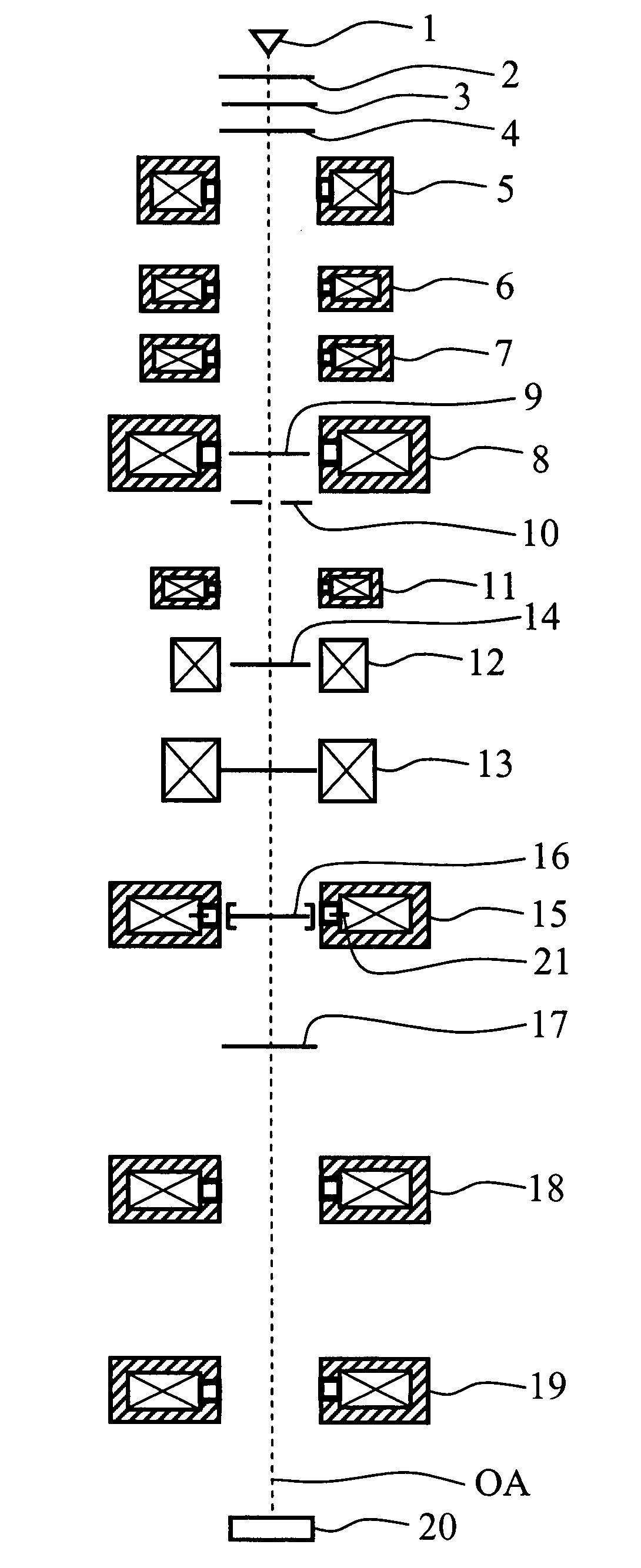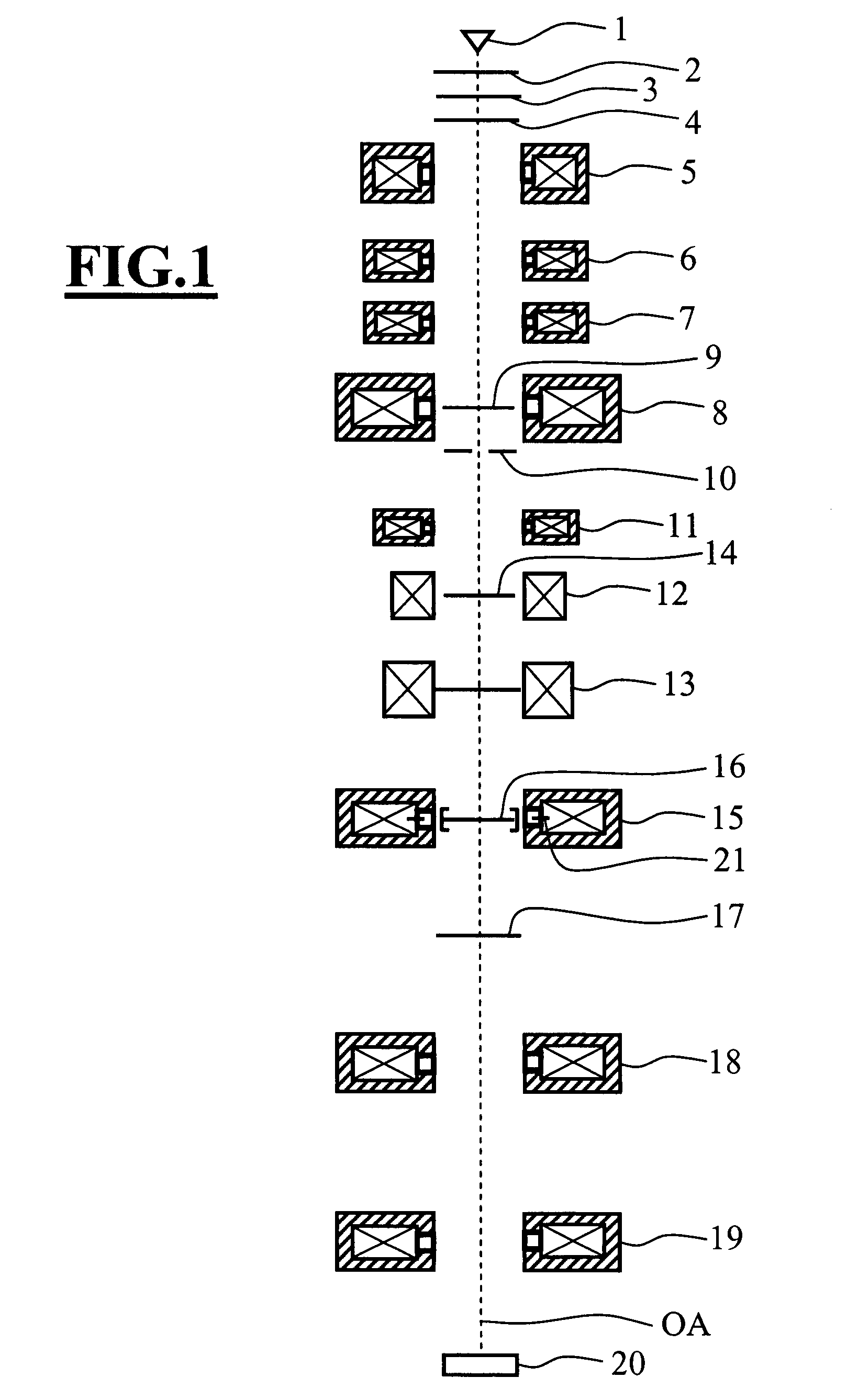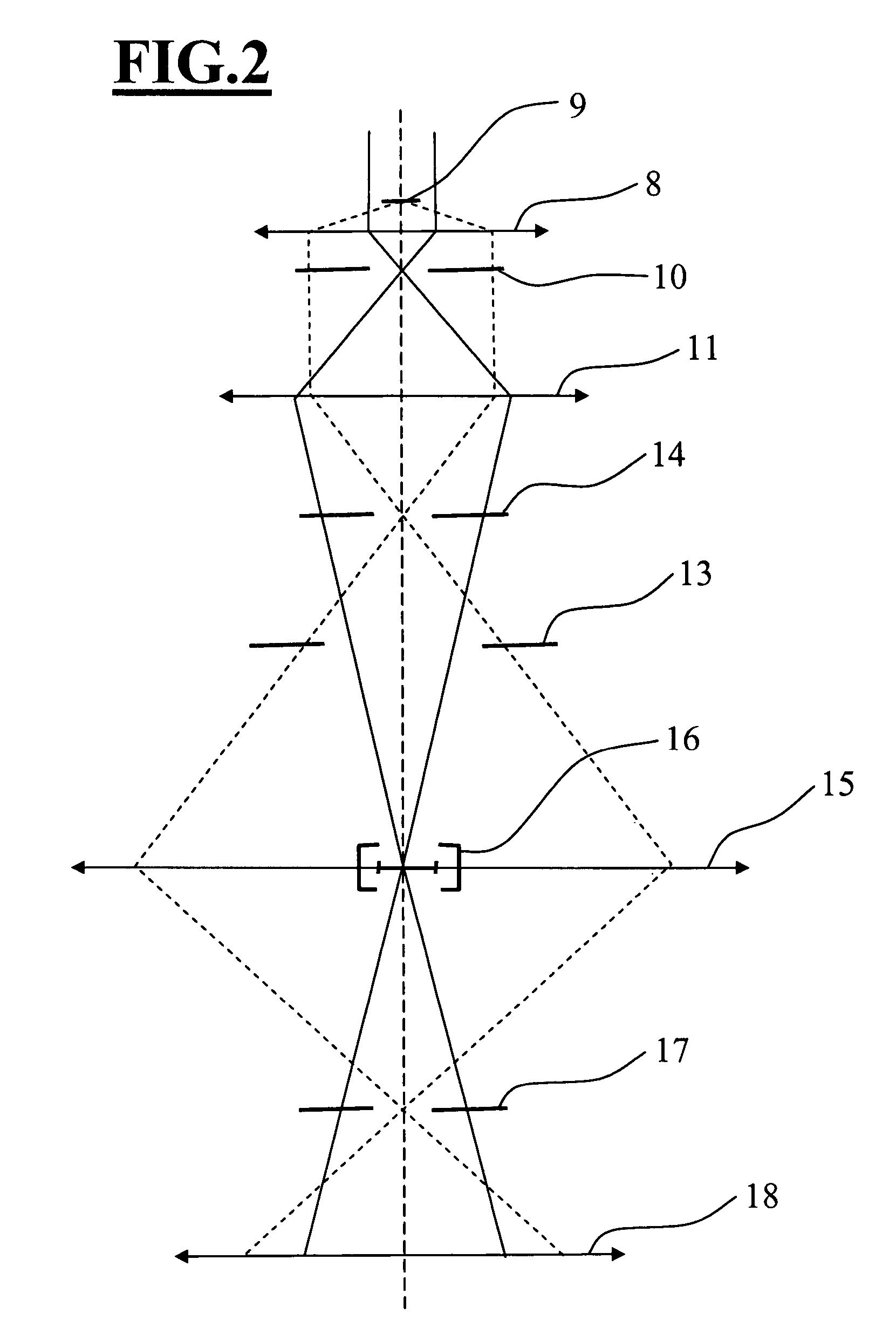Phase contrast electron microscope
a phase contrast and electron microscope technology, applied in the field of phase contrast electron microscopes, can solve the problems of higher diffraction orders, difficult to achieve phase contrast, so as to achieve no deterioration of resolution, the effect of reducing the dimension requirement of the phase-shifting element and ensuring the effect of reducing the size of the beam
- Summary
- Abstract
- Description
- Claims
- Application Information
AI Technical Summary
Benefits of technology
Problems solved by technology
Method used
Image
Examples
Embodiment Construction
[0022]The transmission electron microscope of FIG. 1 includes an electron source 1, for example, a thermal field emission source. An extraction electrode 2 follows the electron source 1 and this extraction electrode has a potential which draws electrons from the electron source 1. The extraction electrode 2 is followed by one or several focusing electrodes 3 in order to optically fix the location of the source position and one or several anodes 4. Because of the potential of the anode 4, the electrons, which emanate from the electron source 1, are accelerated to the desired electron energy of 100 keV or more.
[0023]A multi-stage condenser follows the anode in the direction of movement of the electrons. In the embodiment shown, the condenser has three individual magnet lenses (5, 6, 7) and the entrance end part of the condenser-objective single-field lens 8. With a condenser of this kind, the illumination aperture as well as the field of the object plane 9 can be independently adjuste...
PUM
| Property | Measurement | Unit |
|---|---|---|
| diameter | aaaaa | aaaaa |
| focal length | aaaaa | aaaaa |
| focal length | aaaaa | aaaaa |
Abstract
Description
Claims
Application Information
 Login to View More
Login to View More - R&D
- Intellectual Property
- Life Sciences
- Materials
- Tech Scout
- Unparalleled Data Quality
- Higher Quality Content
- 60% Fewer Hallucinations
Browse by: Latest US Patents, China's latest patents, Technical Efficacy Thesaurus, Application Domain, Technology Topic, Popular Technical Reports.
© 2025 PatSnap. All rights reserved.Legal|Privacy policy|Modern Slavery Act Transparency Statement|Sitemap|About US| Contact US: help@patsnap.com



